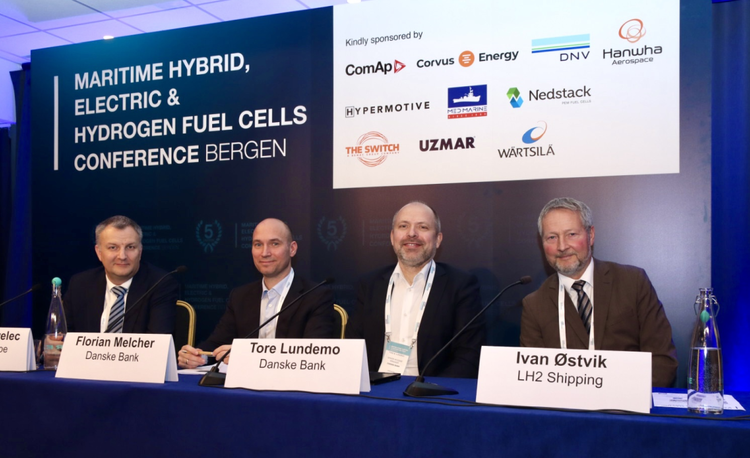LH2 Shipping managing director Ivan Østvik provided a business case for hydrogen as an alternative fuel for newbuild vessels, using the world’s first liquid hydrogen-powered vessel Hydra, which started operating in Norway in 2023, as an example.
He agreed business cases are important when securing finance. “We needed a well-to-wake focus, and the green hydrogen supply,” he said. Designing the ship and selecting the fuel depends on availability, technology, bunkering time and places, distance to sail and cost breakdowns.
Technology assessed included proton-exchange membrane fuel cells, solid oxide fuel cells, dual-fuel engines and generator sets. Fuel assessment includes storage requirements, energy density, availability, bunkering time, toxicity and safety considerations, said Mr Østvik. “PEM fuel cells are a good technology for some shipping applications.”
Hydrogen Europe director for regulatory and market intelligence Grzegorz Pawelec considered the latest regulations and funding from the European Union (EU) in his presentation. He outlined financial sources for clean-hydrogen partnerships and demonstration projects, including bank auctions, innovation funds and FuelEU Maritime.
Mr Pawelec said the latest EU funding series opens in December 2024 and closes in February 2025 for fuel production, bunkering and supply for maritime applications. There are already pilot projects, with EU funding underway for newbuilds, and retrofits for electric power, liquid hydrogen and bioLNG on cruise and cargo ships.
Riviera’s Maritime Hybrid, Electric & Hydrogen Fuel Cell Conference took place in Bergen, Norway on 29-31 October 2024 and looked at key trends, regulations, class rules and the development of zero-emissions ecosystems.

















